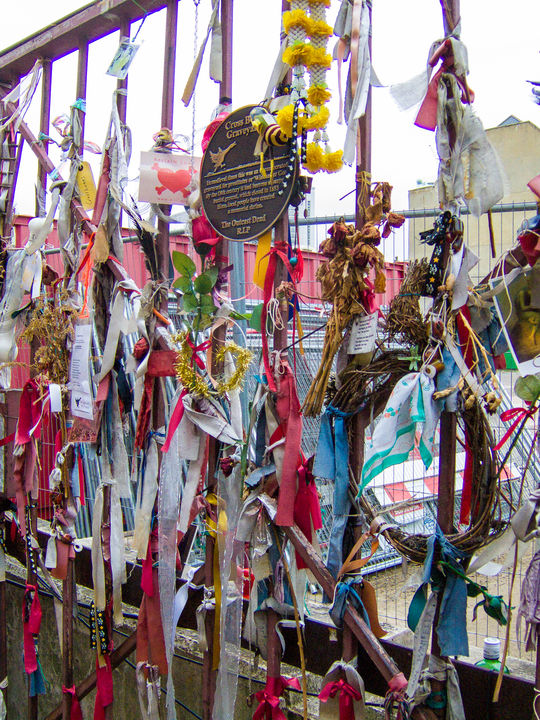Cross Bones graveyard
When I was in London recently, my photographer friend Max showed me round the Cross Bones graveyard in Southwark. The graveyard — which is on land now owned by Railtrack — was used as a burial site for people who, for one reason or another, were denied burial in hallowed ground. Foremost amongst these were the prostitutes who worked in the Southwark stews (brothels). The women were known as 'Winchester geese' because the land on which the brothels were built was owned by the Bishop of Winchester. There's a fine hypocrisy in the fact that the successive bishops were more than happy to collect rent from the brothels, even as they refused Christian burial to the women employed there.
The Southwark stews were closed down under Cromwell, and the Bishop of Winchester no longer collects rent from brothels (as far as I know). Burials in the graveyard continued until the mid-19th century, but thereafter it was largely ignored until Museum of London archaeologists conducted a partial excavation of the site.
There's now a local movement to get proper recognition for the site as a piece of London history. A non-denominational shrine has been created to acknowledge the women who were ignored in death as they were in life, and the friends of the graveyard have set up a petition to protect the site and create a Garden of Remembrance. There's also a good informational website about the Cross Bones graveyard, and the friends of the graveyard organize regular events (a peformance and procession is planned for Halloween).
P.S. I worked on the 'London' entry for my friend Melissa's Encyclopedia of Prostitution. I wrote about some of the curiosities of the history of prostitution in London, including Holland's Leaguer, a brothel that had its own moat and portcullis and once even withstood a brief siege by the Lord Mayor of London's men. I didn't know about Cross Bones at the time, however, which is a pity, as it would have been worth a mention.
